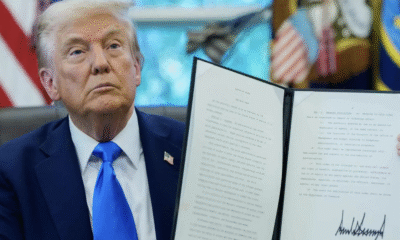Economy
COVID delta variant could hit economic growth in Southeast Asia: Goldman Sachs
Goldman Sachs has cut its 2021 growth forecasts for Southeast Asia as the COVID delta variant creates havoc in major economies in the region. The delta variant has pushed daily COVID-19 cases to record highs in Thailand, Malaysia and Indonesia in recent weeks, which has resulted in stringent restrictions.
Indonesia, Southeast Asia’s largest economy, surpassed India in new daily cases this week, cementing its position as a new Asian virus epicenter – while several of its neighbors are also seeing record COVID-19 case numbers. Various reports highlight that Indonesia, Thailand and Philippines have already cut their gross domestic product (GDP) forecasts for this year. Vietnam, one of the few economies in the world that continued growing strongly in 2020, undershot forecasts for the first half of 2021 and is now struggling with an outbreak in areas that house major industrial parks.
Economists at Goldman Sachs said renewed coronavirus surges and tighter restrictions are likely to weigh significantly more on growth in the second half of 2021 than previously thought. Moreover, Southeast Asia’s overall vaccination rate of 9% lags developed regions like Western Europe and North America, and outpaces only Africa and Central Asia. As such, Goldman slashed its growth forecasts by more than 100 basis points for Indonesia, Malaysia and Philippines. It said stronger growth will benefit trade-oriented economies such as Singapore and Malaysia the most; Malaysia, which is a net commodity exporter, is also likely to gain from higher commodity prices.
Markets across the region, as per The Straits Times, have sold off in recent weeks with the MSCI Asean Index losing 1.7% this month, while governments are forced to blow out their fiscal deficits and central banks run short of ammunition. Sian Fenner, Singapore-based senior Asia economist at Oxford Economics, said given the slow pace of vaccinations, with exception of Singapore, recovery will be bumpy, and the risk of further periods of heightened restrictions remains.
Also Read: Travel to resume to pre-COVID levels after 2023: Collinson and CAPA Report
Tuuli McCully, economist at Scotiabank, pointed out that with advanced economies in the west re-opening, their demand dynamics will likely shift from goods to services. This implies that Asian export growth will likely soften over the coming months. “For the economic recovery to remain on track, domestic demand would need to pick up, yet the concerning COVID-19 situation is dampening such prospects.”
Rob Carnell, head of Asia Pacific research, ING Group, said poorer Southeast Asian countries that tried to limit lockdowns early in the pandemic to mitigate the impact on people’s livelihoods are paying a price for that choice primarily because their efforts to test, trace and isolate positive cases were ineffective. “As a result, countries like Philippines and Indonesia that opted for partial, rolling lockdowns have been forced to continue them in one form or another. It was easier for the richer countries to lock down and pay people to stay home or be furloughed while they worked their way through, and the poorer ones tended to try to trade off restrictions with openness to limit the hit to GDP.”













































Pingback: The garment industry has welcomed the tax rebate for exports.
Pingback: Tatva Chintan Pharma Chem raises Rs 150 cr from anchor investors